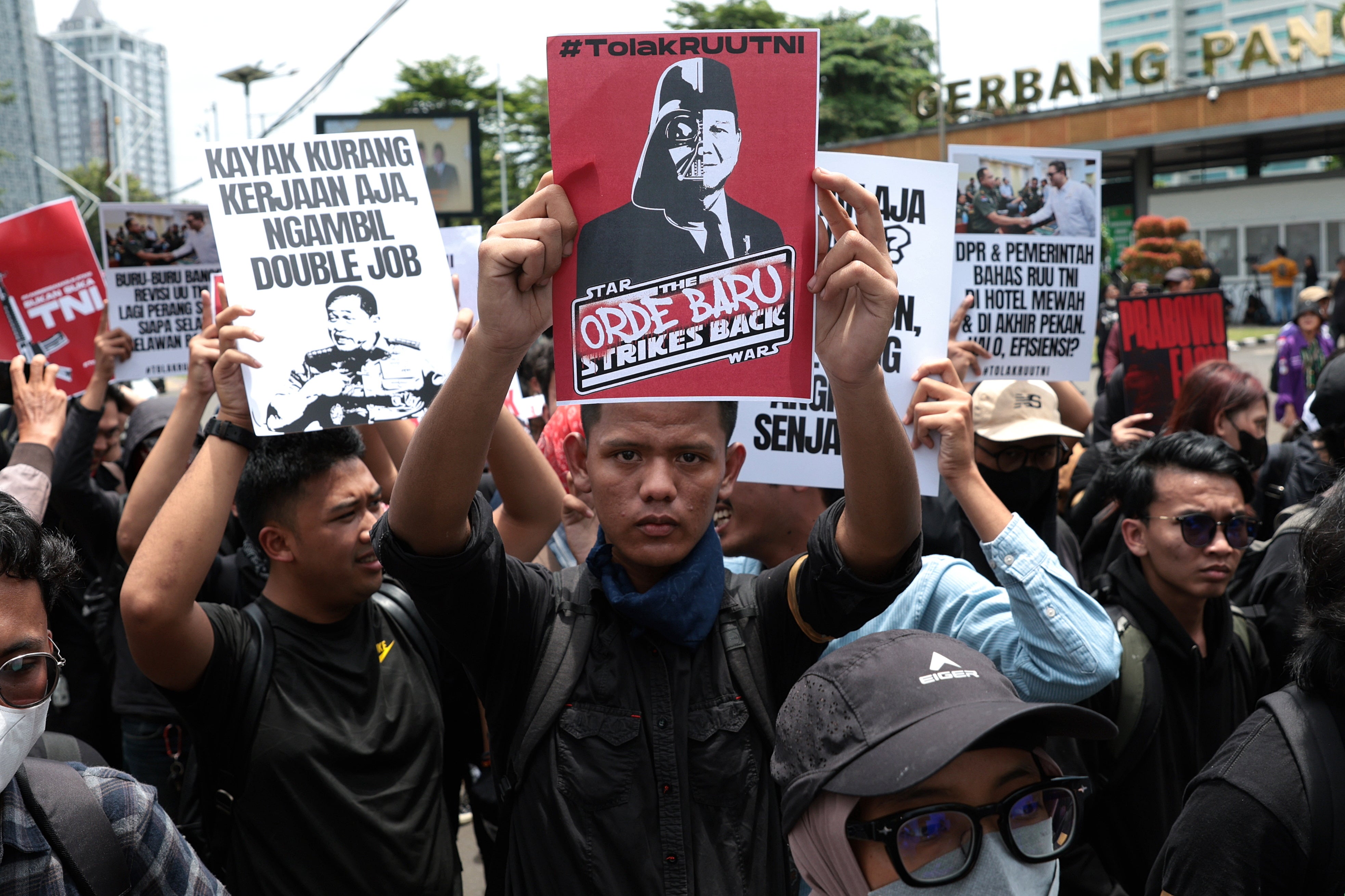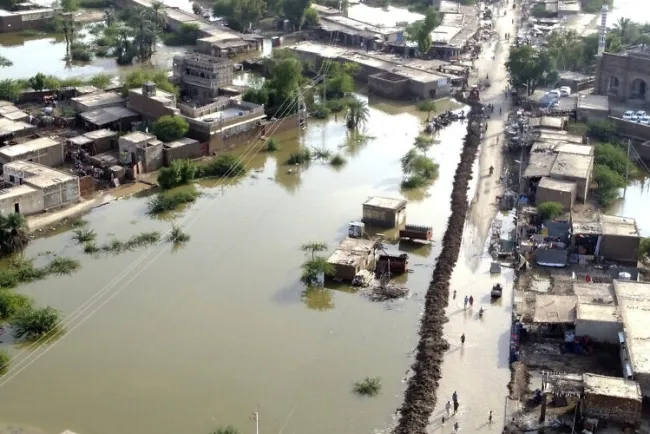Indonesia's Military Law Sparks Violent Clashes: Students Protest for Democracy
In Indonesia, violent clashes erupted in Surabaya as students and activists protested against a newly passed military law that expands the military's role in civilian affairs. What are the implications for democracy in Indonesia?

In a significant escalation of tensions, around 1,000 students and activists gathered in front of a government building in East Java to voice their opposition to an amendment to the military law passed by the Indonesian Parliament last week. This amendment has raised concerns over the military's increasing influence in civilian life, prompting fears reminiscent of Indonesia's authoritarian past under former dictator Suharto.
Protests Turn Violent
Dressed in black, the protesters held banners demanding the military return to the barracks, signaling their rejection of the law. As tensions escalated, clashes broke out between the demonstrators and the police, who responded with water cannons to disperse the crowd. Protesters resorted to throwing rocks, sticks, and Molotov cocktails in a desperate attempt to make their voices heard.
The amendment allows active military officers to occupy positions in 14 government institutions, an increase from the previous limit of 10. This expansion of military involvement in governance has sparked fears of a return to an era marked by military oppression and a crackdown on dissent.
Key Demands of Protesters
The protesters articulated several key demands during the demonstration: 1. Rejection of the revised military law. 2. Limiting the roles of the military in civilian institutions. 3. No expansion of military functions, particularly in the cyber domain. 4. Disbanding the military's territorial commands. 5. Withdrawal of military personnel from Papua. 6. Returning soldiers to their barracks.
The protesters argue that the amendment endangers the democratic fabric of Indonesia and undermines civil liberties. They fear that an empowered military could lead to increased repression and violations of human rights.
Historical Context
Indonesia's history is marked by the authoritarian rule of Suharto, whose regime was characterized by a brutal crackdown on dissent and extensive military oversight in civilian life. The recent legislative changes have raised alarm bells among many who remember the oppressive tactics used during this dark chapter in the nation's history.
Conclusion
The protests in Surabaya reflect a broader struggle for democracy in Indonesia, as citizens push back against policies that threaten to erode civil liberties. As the situation develops, the Indonesian government faces mounting pressure to reconsider the implications of the military law amendment. The protests serve as a reminder of the need for vigilance in protecting democratic values and ensuring that the military remains subordinate to civilian authorities.
Stay tuned for further updates on this unfolding situation and its impact on Indonesia's political landscape.
What's Your Reaction?















